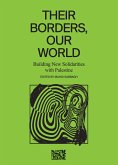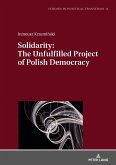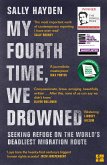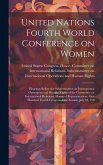What does the politics of solidarity look like in practice, and how can left-wing organizations grow-in numbers and power-while remaining accountable to the broader movements of which they are a part? Against enormous odds and in the face of fierce pushback, the Palestine solidarity movement has succeeded in transforming the landscape of American politics. The movement has catapulted Palestine from being an untouchable topic in even liberal political circles to a central rallying cry in grassroots progressive organizing, one that is championed by some of the highest profile and beloved members of Congress. In the fall and winter of 2023, with the attention of the world focused on Israel's unprecedented aggression against the people of Gaza, millions across the globe mobilized in solidarity with Palestinians and their struggle for liberation. Jewish progressives in the US played a highly visible role in denouncing Israel's actions and US complicity in them: leading mobilizations and disruptions from the US Capitol to Grand Central Station. In this book, two key leaders and former staff of Jewish Voice for Peace (JVP) -Rebecca Vilkomerson and Rabbi Alissa Wise-focus on the important role of anti-Zionist Jewish organizing within the broader Palestine solidarity movement, reflecting on their decade of leadership of JVP and drawing lessons especially relevant to those organizing from a position of solidarity. Against the backdrop of rapid and often devastating political developments, they explore how JVP grew larger as the organization shifted to the left and helped to alter the public narrative about Palestinian liberation, while also navigating the tensions of organization-building and creating a space for Judaism liberated from Zionism. Their insights help contextualize the intense suppression of activism for Palestinian freedom, while illuminating the roots of today's flourishing Jewish solidarity with Palestinians worldwide. In addressing their shortcomings and failures no less than their inspiring successes, Vilkomerson and Wise deliver an account of JVP's organizing during the 2010s that offers crucial strategic lessons for anyone engaging in the collective work of building organizations and fighting for justice as our movements evolve over time.
Hinweis: Dieser Artikel kann nur an eine deutsche Lieferadresse ausgeliefert werden.
Hinweis: Dieser Artikel kann nur an eine deutsche Lieferadresse ausgeliefert werden.








